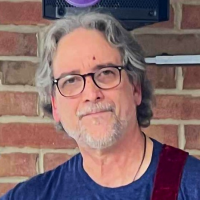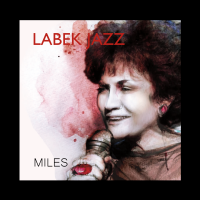Home » Jazz Articles » Interview » Henry Hey: Learning From The Stranger Things
Henry Hey: Learning From The Stranger Things
HH: A lot of people ask about it because Mike is arguably one of the most famous bass players in the world now. Snarky [Puppy] has achieved, and deservedly so, a level of success that almost no other instrumental band has at this point. A whole bunch of things happened because of that with regard to FORQ -most of them not necessarily positive. They're not Mike's fault and they were bound to happen. One thing was that a lot of people ascribed FORQ to be a Snarky Puppy side project, which it never was. A lot of people thought it to be Mike's band, which it only was in part. In fact, even from the first record, it was a collective band— Adam Rogers wrote several compositions. On the second record, Chris McQueen wrote several compositions and on our third record, Mike wrote none of the compositions. By then he was already shifting. This is not a fault of Mike's. By the time we got to the third record Snarky had popped. They had Grammys, he was working on Bokanté and I think that his focus was well away from FORQ. We weren't touring and something had to change.
After a while, I said to Mike that we had to talk and he was so busy, I had to schedule a meeting with him. So we got together and I said, "I think we need to sub your chair out sometime." He was a little taken aback by that. I said, "If we don't tour, we don't exist." I said that to him and he knows more than anyone that it's the truth. Snarky was a touring monster that, as he would say, played in anonymity for 11 years. So we agreed to that and I was free to book us and figure it out. So then we started playing gigs without him. We played some gigs with Louis Cato, who is so great. He's like a freak of nature. But Louis was busy and I knew about Kevin Scott from Tim Lefebvre. I knew Kevin was playing with Wayne Krantz and I thought it might be good. So we started playing with Kevin and it turned out to be a good fit. There's always a growing and adjusting period but we've grown and adjusted and now I think the band is more of a unit than it's ever been. It feels like we're really in sync.
AAJ: So you're going to be touring more with FORQ?
HH: We're going to play at GroundUp [Music] Fest in February and it looks like we will be touring in Japan, Europe and US through the spring. Then it's the European festivals in the summer and back to the U.S. later in the fall. Then we'll see, but definitely more touring, then writing for a new record.
AAJ: Considering the undeniable sonic imprint you leave on this band and Rudder before it, do you consider FORQ to be the evolution of your voice come to fruition?
HH: I hope that I'm writing through to the music that I hear and I feel like I am. I think hard about concept and emotion in composition and try to put that into the music. I remember hearing Lyle Mays talking about drama in composition and how compositions should have an arc and a feeling and a story to them. I've always been really drawn to that. Even beyond just a story, to have a vibe. Like when you hear a composition and it really has almost a taste to it. It sounds weird to say this but I write with that in mind. I want a composition to have a feeling to it, whether it's the way it grooves or the way it sounds. I'm fascinated by quirky things and grooves that feel upside down or chords that move in dramatic ways. What I wrote for Rudder was what I was hearing then. I don't know if FORQ is an evolution but what we did on the latest record is what I'm hearing now. I hope to just keep exploring composition and concepts. I think that's an endless and joyous pursuit.
Tags
PREVIOUS / NEXT
Support All About Jazz
 All About Jazz has been a pillar of jazz since 1995, championing it as an art form and, more importantly, supporting the musicians who make it. Our enduring commitment has made "AAJ" one of the most culturally important websites of its kind, read by hundreds of thousands of fans, musicians and industry figures every month.
All About Jazz has been a pillar of jazz since 1995, championing it as an art form and, more importantly, supporting the musicians who make it. Our enduring commitment has made "AAJ" one of the most culturally important websites of its kind, read by hundreds of thousands of fans, musicians and industry figures every month.























